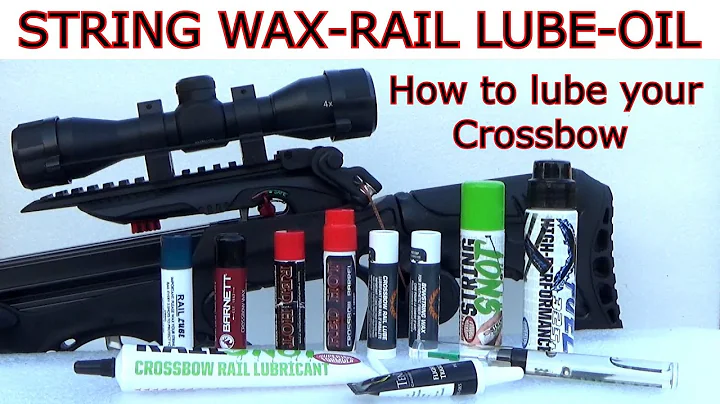Silence Your Noisy Brakes with These Effective Solutions
Table of Contents
- Introduction
- Understanding Brake Systems
- 2.1 Floating Caliper Brake System
- 2.2 Fixed Caliper Brake System
- How Brakes Work
- 3.1 Components of a Brake System
- 3.2 Brake Pad Function
- 3.3 Brake Rotor Function
- Common Brake Noise Issues
- 4.1 Brake Pad Vibration
- 4.2 Caliper and Brake Pad Contact
- 4.3 Brake Pad Hardware Wear
- 4.4 Brake Warning Tab
- 4.5 Brake Glazing
- Fixing Brake Noise Issues
- 5.1 Cleaning and Lubricating Brake Hardware
- 5.2 Replacing Brake Pads
- 5.3 Resurfacing or Replacing Rotors
- 5.4 Checking Caliper Functionality
- 5.5 Proper Caliper Slide Pin Lubrication
- Conclusion
🔧 Top Reasons Why Your Brakes Make Noise and How to Fix Them
Brake noise can be frustrating and concerning for car owners. If you're experiencing unusual sounds when applying the brakes, it's essential to understand the possible causes and how to address them. In this article, we will explore the top reasons behind brake noise and provide effective solutions to fix them.
Introduction
Your car's braking system plays a crucial role in vehicle safety, and any noise can indicate potential issues. By gaining a better understanding of how brake systems function and the various components involved, we can pinpoint the exact cause of the noise and take appropriate measures to fix it.
🚘 Understanding Brake Systems
Brake systems in vehicles can vary, but two common types are the floating caliper and fixed caliper brake systems. Let's take a closer look at each:
2.1 Floating Caliper Brake System
The floating caliper brake system is commonly found in older and smaller newer cars. It consists of a caliper bracket and one or two Pistons on the inside. When the brake pedal is pressed, the caliper moves, exerting pressure on the brake pads and the rotor.
2.2 Fixed Caliper Brake System
On the other hand, the fixed caliper brake system is mounted fixed onto the spindle with no sliding pins. It has an equal number of pistons on both sides of the caliper, providing more stopping power. This type of system is often used in performance-oriented vehicles.
🛠️ How Brakes Work
Before diving into the reasons behind brake noise, it's essential to grasp the fundamental workings of a brake system. Let's explore the key components involved:
3.1 Components of a Brake System
A brake system consists of various components, including brake pads, brake rotors, calipers, and brake lines. When the brake pedal is pressed, hydraulic pressure is generated, causing the brake pads to clamp onto the rotor, resulting in the vehicle's deceleration.
3.2 Brake Pad Function
Brake pads are responsible for creating friction against the rotor, which slows down and eventually stops the vehicle. They are made of high-friction materials and play a vital role in ensuring safe braking.
3.3 Brake Rotor Function
The brake rotor, also known as a brake disc, is a flat, rotating metal disc. When the brake pads clamp onto the rotor, friction is created, converting the kinetic energy of the moving vehicle into heat energy. This heat is then dissipated to prevent brake fade.
📢 Common Brake Noise Issues
Brake noise is often caused by vibrations between metal components or metal surfaces. Let's explore the most common reasons behind brake noise:
4.1 Brake Pad Vibration
One common problem occurs when good brake pads and rotors are installed, yet a squealing noise persists when applying the brakes. This noise is caused by high-frequency vibrations between the caliper, brake pads, and brake pad hardware.
4.2 Caliper and Brake Pad Contact
During the braking process, the caliper can vibrate against the brake pads, leading to annoying squeaks and squeals. High-quality brake pads often feature rubbery backing plates to minimize this metal-to-metal contact.
4.3 Brake Pad Hardware Wear
Over time, the brake pads can rub against the brake pad hardware, causing wear and corrosion. It is crucial to replace worn-out hardware and lubricate the areas where the brake pads move to eliminate brake noise.
4.4 Brake Warning Tab
Brake pads are equipped with warning tabs that produce a squealing noise when the brake pads are excessively worn. This serves as an indicator that the brake pads need immediate replacement to avoid further damage.
4.5 Brake Glazing
Brake glazing occurs when the brakes become hardened and less efficient due to excessive heat, such as prolonged heavy braking or brake abuse. Glazed brake pads can lead to brake squealing and reduced stopping power.
🔧 Fixing Brake Noise Issues
To eliminate brake noise and restore optimal braking performance, here are several steps you can take:
5.1 Cleaning and Lubricating Brake Hardware
Properly cleaning and lubricating brake hardware is crucial in eliminating metal-to-metal friction noise. By using brake lubricant on the areas where the brake pads and hardware interact, you can significantly reduce brake noise.
5.2 Replacing Brake Pads
If brake pads are worn beyond their recommended thickness or show signs of damage, it is essential to replace them. Install new brake pads and ensure that they are properly lubricated to prevent noise issues.
5.3 Resurfacing or Replacing Rotors
Damaged or excessively worn brake rotors may need to be resurfaced or replaced. Resurfacing involves removing a thin layer of the rotor's surface to create a smooth, even brake pad contact area. In some cases, it may be necessary to install new rotors.
5.4 Checking Caliper Functionality
Proper caliper functionality is essential for even brake pad wear. Ensure that the caliper returns to its original position when the brakes are released. A stuck or malfunctioning caliper can cause uneven brake pad wear and noise issues.
5.5 Proper Caliper Slide Pin Lubrication
Caliper slide pins should move freely and require proper lubrication to prevent sticking. Lubricating the slide pins helps maintain smooth caliper movement and ensures even brake pad pressure against the rotor.
Conclusion
Brake noise can be a common issue for car owners, but understanding the underlying causes and implementing appropriate solutions can help eliminate the annoyance. By following the steps mentioned in this article, you can effectively address brake noise problems and enjoy a quieter and safer driving experience.
Highlights
- Understanding the different types of brake systems: floating caliper and fixed caliper.
- Exploring the components of a brake system: brake pads, brake rotors, calipers, and brake lines.
- Identifying common causes of brake noise, such as brake pad vibration, caliper and brake pad contact, brake pad hardware wear, brake warning tab, and brake glazing.
- Providing solutions to fix brake noise issues, including cleaning and lubricating brake hardware, replacing brake pads, resurfacing or replacing rotors, checking caliper functionality, and lubricating caliper slide pins.
FAQs
Q: Why is my car's brake system making noise?
A: Brake noise can be caused by various factors such as brake pad vibration, caliper and brake pad contact, worn-out brake pad hardware, brake warning tab activation, and brake glazing.
Q: Can I fix brake noise on my own?
A: Some brake noise issues can be fixed by car owners. Cleaning and lubricating brake hardware, replacing brake pads, and checking caliper functionality are a few steps you can take. However, it is always recommended to consult a professional mechanic for a thorough inspection and proper diagnosis.
Q: How often should I replace my brake pads?
A: The lifespan of brake pads can vary depending on driving habits, road conditions, and the type of brake pads used. As a general guideline, it is recommended to have your brake pads inspected at least once a year and replaced if they have worn beyond their recommended thickness.
Q: Can glazed brake pads be fixed, or do they need to be replaced?
A: Glazed brake pads are typically less effective and can cause noise issues. In most cases, it is best to replace glazed brake pads to restore optimal braking performance. Resurfacing the brake rotors may also be necessary to achieve smooth brake pad contact.







